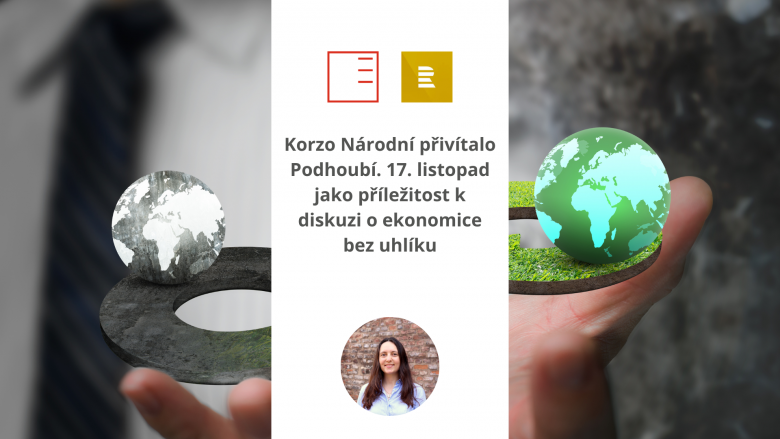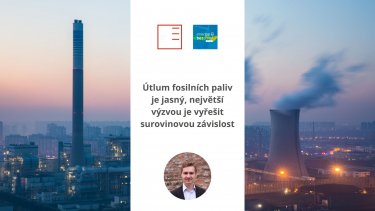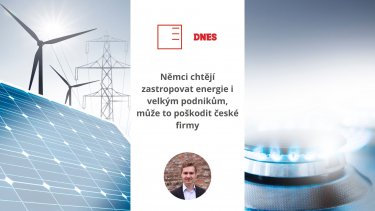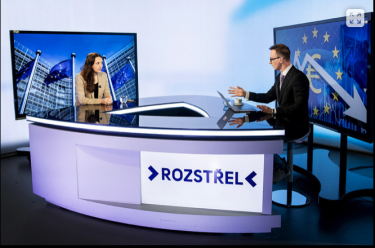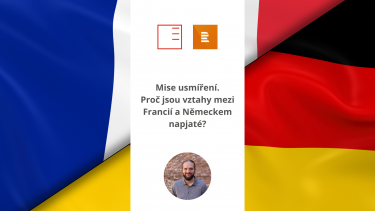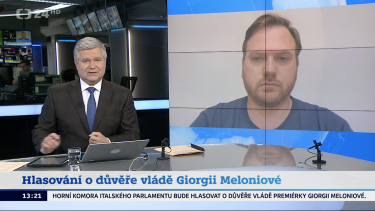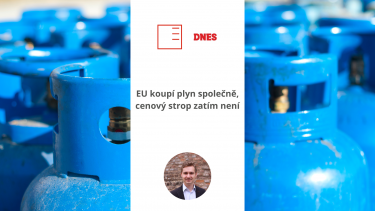ČRo Wave: Korzo Národní welcomed Podhoubí. 17 November as an opportunity to discuss the carbon-free economy
Our senior researcher was a guest on Radio Wave's Podhoubí programme discussing the green economy. This was a podcast form recorded live in front of an audience to mark the 17 November celebrations at Korzo Národní.
Show more
Energie bez emisí: The decline of fossil fuels is clear, the biggest challenge is to solve raw material dependence
Our researcher Michal Hrubý was a guest on the Energy Without Emissions podcast. He answers questions on issues such as current energy prices and their possible future development, what impact climate change will have on industry, what is the state's strategy or how the state is approaching the situation.
Show moreDeník N: The new emission standard will not make cars more expensive. Tightening rules would increase popularity of used cars, says expert
Euro 7 - a proposal for a new emissions standard presented last week by the European Commission. Our researcher Michal Hrubý commented on the standard concerning internal combustion engines in an interview for Deník N. In the interview you can find out how the standard will affect the price of cars or what developments we can expect on the car market.
Show moreiDNES.cz: Germans want to cap energy even for big companies, it may harm Czech firms
The German government plans to finance so-called price brakes, which are similar to the Czech price caps for consumers. The fundamental difference of the price brake in Germany is that it will also apply to large industrial enterprises. Our researcher Michal Hrubý commented on the situation.
Show moreRTVS: Slovenia will have a new president. What decided the victory of Natasha Pirc Musar?
Nataša Pirc Musar won Sunday's second round of the presidential election, receiving 54% of the votes. She defeated her rival, former Foreign Minister Andrej Logar. Musar will replace current president Borut Pahor, who has been unable to run for two terms. Our analyst Žiga Faktor, head of the Brussels office, also commented on the situation.
Show more
ČRo: Low-carbon transformation will be challenging in the context of consumable natural resources
The European Union will restrict the sale of cars with internal combustion engines by 2035. Our senior researcher Kateřina Davidová commented on Czech Radio about the critical materials for the green transformation.
Show more
iDNES.cz: Will the EU find a common solution to the energy crisis?
The current price stability of the gas market does not mean the end of problems with possible shortages. The European Commission has therefore prepared a series of measures to stabilise the market and ensure that there will be plenty of gas next year. Our senior research fellow Kateřina Davidová commented on what measures are on the table and how individual countries will respond to the crisis.
Show more
CRo Plus: Mission of Reconciliation. Why are relations between France and Germany strained?
The originally scheduled regular meeting between the governments of France and Germany was eventually postponed. Could this be a signal of some major differences in relations between the countries? What are the causes of the contradictions? Are they more personal or political? What impact could it have if Paris and Berlin fail to agree on their position on China? Our senior research fellow Vít Havelka commented on the situation between the countries in the programme Odpolední Plus for Czech Radio Plus.
Show more
Studio ČT24: Vote of confidence in the government of Giorgia Meloni
Our research associate Alexnad Lagazzi commented for ČT24 on the current situation of the newly formed Italian government. What is the current state of the government and what will the opposition come up with? How will the government revise the reforms that lead to EU support and how will Italy's foreign policy evolve?
Show more
MF DNES: EU to buy gas together, no price ceiling yet
European leaders agree on how to tackle the current gas situation. The solution should be joint purchases or compulsory solidarity between countries in case of emergency. Two instruments to limit the price of gas were agreed. The first is a dynamic price limit, which should moderate prices in the event of a rapid increase. The second should ensure that prices are corrected in the event of fluctuations during daily trading on the stock exchange. Our research fellow Michal Hrubý provided his view on these solutions to Mladá fronta Dnes.
Show moreStaroměstské náměstí 4/1
Prague 1 - Staré Město
110 00
tel.: +420 212 246 552
email: europeum@europeum.org
https://www.europeum.org
